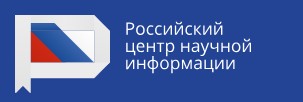Linguadidactic peculiarities of the new teaching complex of the Russian language for foreigners
Abstract
Shestak O.V., Paretskaya M.E. (Rostov-on-Don, Russian Federation)
The article provides a description of linguamethodic educational complex in Russian for foreigners studying at language courses in the universities of Russia and reached the first level of certification of general proficiency in Russian (B1).
The complex consists of a textbook, workbook, containing targets for the grammar, audio and disk videotasks. The authors pay special attention to the methods of training to kinds of speech activity and improve the communicative competence in social and cultural spheres, as well as different techniques of presentation of lexical and grammatical material.
Targets set are designed on traditional methods of teaching Russian as a foreign language, and taking into account modern test technologies. The authors used a criterion-oriented tests that are presented in the quest to establish compliance, logical or chronological sequence, as well as jobs of multiple-choice and alternative answers. As part of a school assignment can use a combination of issues related to reading and writing, listening and speaking.
The textbook and workbook has available application sheet with keys to tasks. Audio recordings, videos, excerpts from films and photographs used in the performance of tasks are placed on the disk.
Key words: Russian as a foreign language, communicative competence, linguistic competence, module, types of speech activity.
References
Андрюшина Н.П. [и др.] Требования по русскому языку как иностранному. Первый уровень. Общее владение. [Электронный ресурс]: электронный аналог печатного издания: 2-е изд. М.; СПб.: Златоуст, 2009. 32 с. URL: http: // www. zlat.spb.ru (дата обращения: 14.02.2016).
Маслыко Е.А., Бабинская П.К., Будько А.Ф. Настольная книга преподавателя иностранного языка: справочное пособие; 9-е изд., стереотипное. М.: Высшая школа, 2004.
Учебные программы кафедры русского языка для гуманитарных и естественных факультетов: 2-е изд. СПб.: Изд-во С.-Петерб. ун-та, 2008.
References
Andryushina N.P.[i dr.] Trebovaniya po russkomu yazyku kak inostrannomu. Pervyi uroven’. Obshchee vladenie. [Elektronnyi resurs]: elektronnyi analog pechatnogo izdaniya: 2-e izd. M.; SPb.: Zlatoust, 2009. 32 s. URL: http: // www.zlat. spb.ru (data obrashcheniya: 14.02.2016).
Maslyko E.A., Babinskaya P.K., Bud’ko A.F. Nastol’naya kniga prepodavatelya inostrannogo yazyka: spravochnoe posobie; 9-e izd., stereotipnoe. M.: Vysshaya shkola, 2004. 522 s.
Uchebnye programmy kafedry russkogo yazyka dlya gumanitarnykh i estestvennykh fakul’tetov: 2-e izd. SPb.: Izd-vo S.-Peterb. un-ta, 2008. 445 s.
Downloads
How to Cite
Issue
Section
License
Authors who publish with this journal agree to the following terms:
- Authors retain copyright and grant the journal right of first publication with the work simultaneously licensed under a Creative Commons Attribution License that allows others to share the work with an acknowledgement of the work's authorship and initial publication in this journal.
- Authors are able to enter into separate, additional contractual arrangements for the non-exclusive distribution of the journal's published version of the work (e.g., post it to an institutional repository or publish it in a book), with an acknowledgement of its initial publication in this journal.
- Authors are permitted and encouraged to post their work online (e.g., in institutional repositories or on their website) prior to and during the submission process, as it can lead to productive exchanges, as well as earlier and greater citation of published work (See The Effect of Open Access).



















